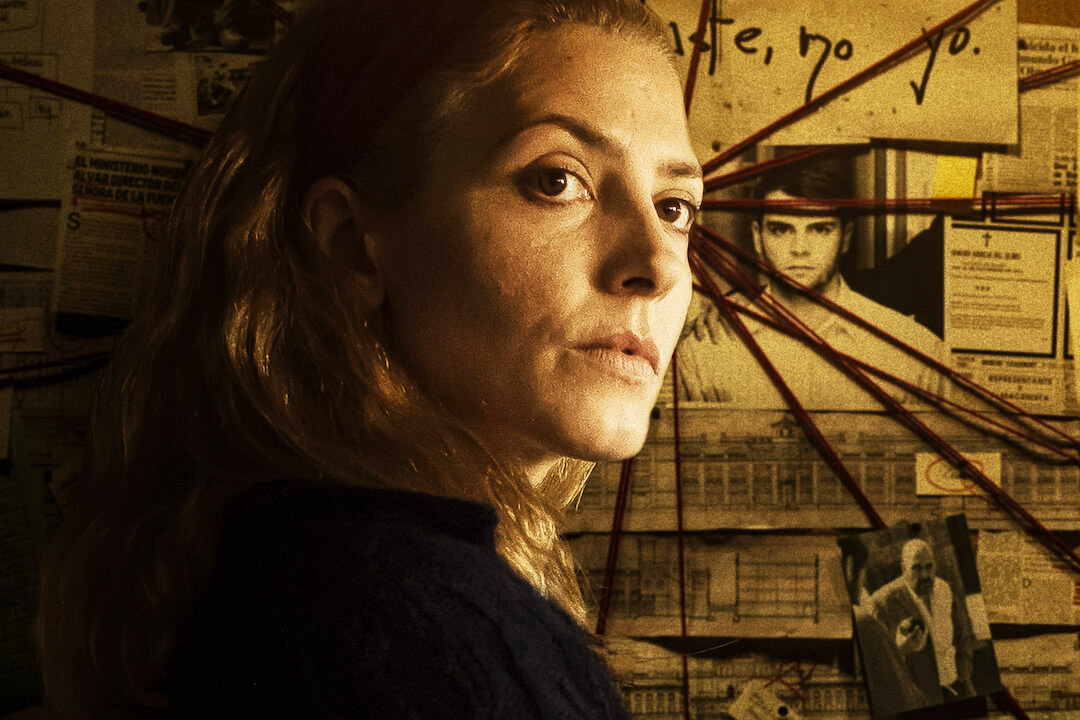A truism often attributed to Dostoyevsky posits, “The degree of civilization in a society can be judged by entering its prisons.” Netflix Original God’s crooked lines asks if the same could be said for Spain’s psychiatric institutions in the late 1970s. When a detective delves into an asylum to uncover the truth about a patient’s mysterious death, she ends up learning less about the lives of those who roam — and control — the asylum.
The essentials: Damián García del Olmo dies within the walls of an asylum, setting off a chain of events that leads to the arrival of private detective Alice Garcia (Bárbara Lennie) to solve the case. She introduces herself as a patient to get an inside look at the facility and track down the suspects. With the help of the confident and smart inmate Ignacio (Pablo Derqui), she begins to see a clearer view of the patients and their care.
The deeper she delves into her investigation, the more she begins to suspect something is wrong with the doctors led by Samuel Alvar (Eduard Fernández). But finding her implicated in the death triggers a strong defensive reaction that uses their power as designated authorities to question whether Alice is who and what she says. They maintain a fractured relationship with their husband, who has repeatedly avoided death by poisoning, as a cudgel to delegitimize their truth-finding efforts. Nothing is as it seems in this psychiatric ward, possibly including Alice.
Which movies will it remind you of?: God’s crooked lines starts out like a spin-on One flew over the cuckoo’s nest with an *apparently* healthy person entering an institution. But it quickly turns into shutter Island When Alice finds her new surroundings anything but a wonderland, the question arises if she’s being set alight, if the institution has driven her insane, or if she was like this all along.
Notable performance: Given the many twists and turns of fate in Alice’s story, it is up to actress Bárbara Lennie to ground the action in the character’s immediate psychological reality. It’s a difficult task that she accomplishes with grace and determination.
Memorable dialogue: “If God had created us in his own image and likeness, like a sculpture without blemish,” posits facility director Samuel Alvar, “the patients who end up here would be like God’s crooked lines when he learned to write.” Apparently, everyone is excited Explanation of an unusual title Attention, but this one offers additional allure as it is, to say the least, a queasy description of the facility’s patients.
gender and skin: The only nudity in the film is incidental within the prison walls, so don’t expect the thrill of a cavity search or a communal shower.
Our opinion: God’s crooked lines starts out strong but eventually sinks under the weight of its own complexity. At over two and a half hours, this mystery, adapted from Torcuato Luca de Tena’s novel, is packed with enough groundbreaking developments. At a certain point, it feels like co-writer-director Oriol Paulo just loses the thread. The wheels start to fall off as the asylum descends into chaos, throwing us into downright gaslight-gatekeeper-girlboss territory with Alice. Ultimately, filmmaking isn’t powerful enough to merit the amount of mental energy it takes to keep up with a world where every motivation or moment can be questioned.
Our appeal: SKIP IT. The ambiguities of God’s crooked lines serve only to arouse ambivalence. Flashes of intrigue and undeniable intent will undeniably draw in some patient viewers. But the film doesn’t argue strongly enough how much effort it would take to come up with one’s own answer to the unresolved ending by unraveling the web of competing narratives.
Marshall Shaffer is a New York-based freelance film journalist. Besides Decider, his work has also appeared on Slashfilm, Slant, Little White Lies and many other media. One day everyone will realize how right they are Spring breakers.
